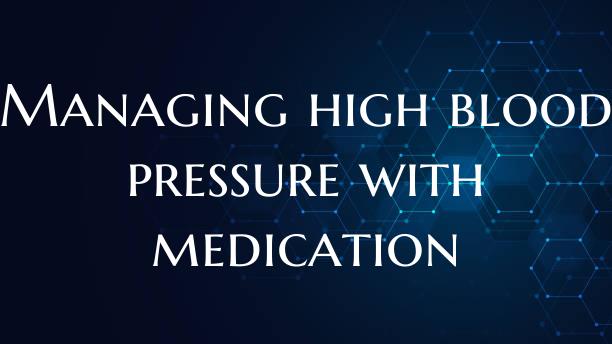
Managing high blood pressure with medication
High blood pressure, also known as hypertension, is a common condition that affects a significant portion of the population. It is crucial to manage high blood pressure effectively to reduce the risk of serious health complications such as heart disease, stroke, and kidney problems. While lifestyle modifications like diet and exercise play a valuable role in controlling blood pressure, medication is often necessary for many individuals to maintain healthy levels.
There are various types of medications available for managing high blood pressure, and each works differently to lower blood pressure. Some common classes of blood pressure medications include:
1. Diuretics: Diuretics, also known as water pills, help the body eliminate excess sodium and water, thereby reducing blood volume and lowering blood pressure.
2. Beta-blockers: Beta-blockers work by reducing the heart rate and the heart's workload, which helps to lower blood pressure.
3. ACE Inhibitors: Angiotensin-converting enzyme (ACE) inhibitors help relax blood vessels, making it easier for blood to flow and reducing blood pressure.
4. Calcium Channel Blockers: These medications prevent calcium from entering the heart and blood vessel cells, which causes the blood vessels to relax and blood pressure to decrease.
5. ARBs (Angiotensin II Receptor Blockers): ARBs block the action of angiotensin II, a hormone that narrows blood vessels, helping to lower blood pressure.
It is crucial to work closely with a healthcare provider to determine the most suitable medication and dosage for managing high blood pressure. It is essential to take the medication exactly as prescribed and to follow up regularly with the healthcare provider to monitor blood pressure levels and make any necessary adjustments to the treatment plan.
In addition to medication, lifestyle changes such as maintaining a healthy weight, following a balanced diet low in sodium, engaging in regular physical activity, managing stress, and avoiding tobacco and excessive alcohol consumption are essential components of managing high blood pressure effectively.
By combining medication with healthy lifestyle habits, individuals can effectively control their blood pressure levels and reduce the risk of complications associated with hypertension. Remember, managing high blood pressure is a lifelong commitment to maintaining good health and well-being.